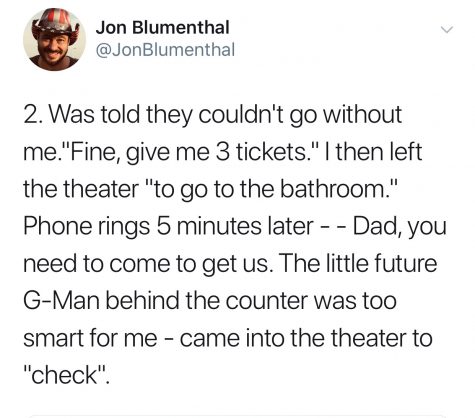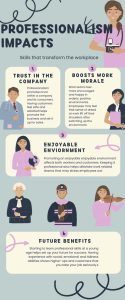Rated R Reviewed As Unnecessary
Do kids under the age of 17 need to be accompanied by adults in order to see a Rated R movie?

October 22, 2018
A movie’s Rated R policy states no person under the age of 17 may attend a Rated R film unless accompanied by a parent or guardian who is over the age of 21.
This is completely unnecessary because in order for teens 17 and younger, the adult accompanying MUST attend with their child, instead of simply paying for their child’s ticket. I doubt many parents would want to join their kid to see a horror movie like The Nun.
Parents don’t have the same movie taste as their kid, so why can’t parent just get their kid their ticket, and give consent at the time of the purchase?
Recently, I had an experience at an AMC theatre where I went with a friend in hopes of seeing A Simple Favor. My friend’s dad was kind enough to take us, but he didn’t have time to join us at this movie, so when he tried to purchase our tickets for us, employees would not let us in because we were under the age of 17.
After we pondered just skipping the movie altogether, our posse decided to purchase tickets.

With the three tickets, my friend and I would attend the movie, but her dad would leave to run his errands.
After we seeing two previews, my friend and I were quickly pulled out by an employee who had stated one of his coworkers saw my friend’s dad leave, so we weren’t allowed back into the theater. After his fine declaration, he seemed quite proud of himself for catching two teenage girls going to see an Anna Kendrick movie.
I understand that this employee was just doing his job, but I wondered why he went out of his way to pull us out of the theater. It wouldn’t be the end of the world if three paying customers went to see a movie.
The sale was already made and AMC already got their money, so done deal right? I guess not. After this experience, AMC ended up losing a loyal customer.
I continued to wonder why that AMC employee thought it was so necessary to take us out of the theatre. What were they going to get out of it? Pride? Validation? The employee himself didn’t even look old enough to be in the movie, so why was he there to pull us out of the theatre?
I wondered if many other people had encountered such an experience. It didn’t seem uncommon for something like this, especially since many other theaters have the same policy. The difference is, many theaters don’t heavily enforce this policy as much as AMC. This was proven in a study done by the Federal Trade Commission.
In 2010, the FTC decided to put the Rated R policy into action in an undercover survey. In this study, 33% of the teens aged 13 to 16 got into said Rated R movie. In 2013, the same experiment was conducted, only 24% of kids got in.
After this number drop, it was displayed that many theaters were enforcing these policies. But with these enforcement, that still doesn’t stop teens from sneaking into the movie they want to see. Some kids will purchase a ticket for a PG-13 ticket in a time slot, but sneak into a different movie in another time slot.
With these common tactics, I wondered why theatres didn’t alter their policies. A solution could be having adults sign a document, similar to a permission slip, at the time of the purchase. This would give written consent and documentation for the purchaser.
This solution would also help cut down on the number of teens sneaking into movies. Along with those numbers dropping, there would also be an increase in numbers for ticket purchases because more people would be able to see the movie they would want to see.
Amending the unnecessarily strict Rated R policy would benefit not only theaters but also purchasers.






